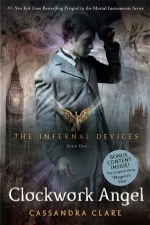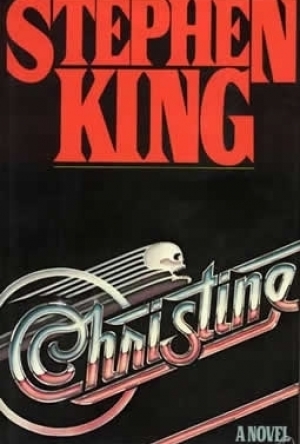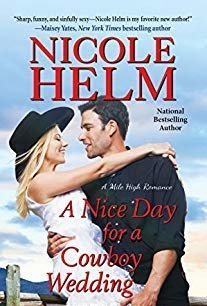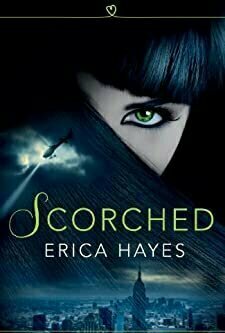Search
Search results
Hazel (1853 KP) rated He Walks Among Us: Encounters with Christ in a Broken World in Books
Dec 17, 2018
<b>Synopsis</b>
Richard Stearns is the president of World Vision United States who, along with his wife Reneé, regularly visits the poorer countries of our world to see the ways the charity is helping to change people's lives. <i>He Walks Among Us</i> is a compilation of short thoughts and observations (two-to-three pages, including photographs) they have both had while conducting their work. As they alternate the writing, we are given opinions and experiences that we may be able to relate to our own. As Richard is the president of the organisation, he can give an insight into the way World Vision works, however, he can also express his opinions as a father, grandfather and believer in Christ. Reneé is also a World Vision worker, but due to her nature, gives a more maternal impression of the scenes she witnesses.
The individuals written about in this book come from all over the world. Most are located in Africa, but there are also similar stories in Asia, South and North America, and even Eastern Europe. The terrors these people have faced are shocking (AIDs, war, sexual abuse, natural disasters etc), but each family has been aided in some way by World Vision and their donors.
The purpose of <i>He Walks Among Us</i> is not to promote World Vision, but to encourage us to let God and Jesus into our lives. Richard and Reneé assume their readers are Christians, however, they realise that being a Christian does not equate to fully accepting God's plans. The victims of war, rape, and poverty mentioned have also been touched by Jesus. Many did not know him before World Vision came into their lives, but they have now been transformed through the power of his love - although their situation may not have significantly improved.
The actual stories used to illustrate the work of World Vision are only brief mentions, providing the bare bones of the situations. What Richard and Reneé have focused on is linking these lives, their lives and our lives to passages from the Bible. Either taken literally or metaphorically, the pair manage to relate everything to the actions and fates of a number of key Biblical characters. This emphasises that Our Lord is walking among us, giving life, peace, hope and steadfast faith.
<b>Ideas</b>
Giving someone new hope or purpose in their life can be related to Jesus raising Lazarus from the dead. Whether people are literally dying, or on the edge of hopelessness and despair, improving their situation can turn their lives around.
The donors and workers at World Vision are like the Good Samaritan in Jesus' parable. We do not know these people, know their religion or circumstances, yet we send money and aid. To do nothing would make us the Priest or Levite in the story.
David was only a young boy when he had to face Goliath, yet, against all odds, he defeated him. The children mentioned in this book are similar to David. They each have their metaphorical Goliath's: poverty, illness, loss of parents, war, hunger etc, but with God working through us, these can be overcome.
<b>Noteworthy Bible Verses</b>
Each chapter of the book begins with a Bible verse, and often more are included within the text. Here are a few that really relate to the work of World Vision and the ways in which we can involve ourselves:
Philippians 4:12-13
Luke 21:3-4
Luke 6:20-21
Psalm 23:4
<b>Statistics</b>
23 million people in sub-Sahara Africa are suffering from HIV.
In Soviet-controlled Georgia, churches were banned. Some villages are only just seeing their first church in over 400 years.
20 thousand children under the age of 5 die every day.
Every 4 seconds a child under 5 dies.
Over 2 billion people in the world are living on $2 or less a day.
1 billion people have no access to clean drinking water.
41% of the population in Niger have no clean water.
<b>Citations</b>
Helen Keller: "So much has been given to me, I have no time to ponder over that which is denied."
Oswald Chambers: "The great hindrance in spiritual life is that we will look for big things to do. Jesus took a towel ... and began to wash the disciples' feet."
Mother Theresa: "I am a pencil in the hand of a writing God who is sending a love letter to the world."
C.S. Lewis: "Humility is not thinking less of yourself but thinking of yourself less."
<b>Other Mentions</b>
Hymn - Frances R. Havergal, <i>Take my Life and let it be.</i>
Film - <i>Pushing the Elephant</i>
Richard Stearns is the president of World Vision United States who, along with his wife Reneé, regularly visits the poorer countries of our world to see the ways the charity is helping to change people's lives. <i>He Walks Among Us</i> is a compilation of short thoughts and observations (two-to-three pages, including photographs) they have both had while conducting their work. As they alternate the writing, we are given opinions and experiences that we may be able to relate to our own. As Richard is the president of the organisation, he can give an insight into the way World Vision works, however, he can also express his opinions as a father, grandfather and believer in Christ. Reneé is also a World Vision worker, but due to her nature, gives a more maternal impression of the scenes she witnesses.
The individuals written about in this book come from all over the world. Most are located in Africa, but there are also similar stories in Asia, South and North America, and even Eastern Europe. The terrors these people have faced are shocking (AIDs, war, sexual abuse, natural disasters etc), but each family has been aided in some way by World Vision and their donors.
The purpose of <i>He Walks Among Us</i> is not to promote World Vision, but to encourage us to let God and Jesus into our lives. Richard and Reneé assume their readers are Christians, however, they realise that being a Christian does not equate to fully accepting God's plans. The victims of war, rape, and poverty mentioned have also been touched by Jesus. Many did not know him before World Vision came into their lives, but they have now been transformed through the power of his love - although their situation may not have significantly improved.
The actual stories used to illustrate the work of World Vision are only brief mentions, providing the bare bones of the situations. What Richard and Reneé have focused on is linking these lives, their lives and our lives to passages from the Bible. Either taken literally or metaphorically, the pair manage to relate everything to the actions and fates of a number of key Biblical characters. This emphasises that Our Lord is walking among us, giving life, peace, hope and steadfast faith.
<b>Ideas</b>
Giving someone new hope or purpose in their life can be related to Jesus raising Lazarus from the dead. Whether people are literally dying, or on the edge of hopelessness and despair, improving their situation can turn their lives around.
The donors and workers at World Vision are like the Good Samaritan in Jesus' parable. We do not know these people, know their religion or circumstances, yet we send money and aid. To do nothing would make us the Priest or Levite in the story.
David was only a young boy when he had to face Goliath, yet, against all odds, he defeated him. The children mentioned in this book are similar to David. They each have their metaphorical Goliath's: poverty, illness, loss of parents, war, hunger etc, but with God working through us, these can be overcome.
<b>Noteworthy Bible Verses</b>
Each chapter of the book begins with a Bible verse, and often more are included within the text. Here are a few that really relate to the work of World Vision and the ways in which we can involve ourselves:
Philippians 4:12-13
Luke 21:3-4
Luke 6:20-21
Psalm 23:4
<b>Statistics</b>
23 million people in sub-Sahara Africa are suffering from HIV.
In Soviet-controlled Georgia, churches were banned. Some villages are only just seeing their first church in over 400 years.
20 thousand children under the age of 5 die every day.
Every 4 seconds a child under 5 dies.
Over 2 billion people in the world are living on $2 or less a day.
1 billion people have no access to clean drinking water.
41% of the population in Niger have no clean water.
<b>Citations</b>
Helen Keller: "So much has been given to me, I have no time to ponder over that which is denied."
Oswald Chambers: "The great hindrance in spiritual life is that we will look for big things to do. Jesus took a towel ... and began to wash the disciples' feet."
Mother Theresa: "I am a pencil in the hand of a writing God who is sending a love letter to the world."
C.S. Lewis: "Humility is not thinking less of yourself but thinking of yourself less."
<b>Other Mentions</b>
Hymn - Frances R. Havergal, <i>Take my Life and let it be.</i>
Film - <i>Pushing the Elephant</i>
Uptown Oracle (24 KP) rated Clockwork Angel in Books
Jun 30, 2017
Clare exceeds expectations with Clockwork Angel
Clockwork Angel is the first in a trilogy of books. This series is a prequel to The Mortal Instruments, also written by Cassandra Clare. Tessa traveled to London to live with her brother, when he appears missing she is captured. Saved by Will, Tessa lives within the institute with the Shadowhunters helping to find Nate, whilst also finding out what the Magister's evil plan is.
I've heard so many times that The Infernal Devices is so much better than the Mortal Instruments. In comparison I can definitely agree the writing and overall plot is improved. The main issue I had was that in some cases, it was too similar to The Mortal Instruments. My instant thought was Will was similar to Jace although I'm unsure if this was intentional or not. The love triangle was also reminiscent of Clare's previous work.
I enjoyed that Clockwork Angel was set in London rather than New York. I was getting fairly bored of being focused on New York so this gave us a chance to see a new institute. The different location and different time means the institute is extremely different to the one in TMI.
The big question of who is the Magister? in the first chapter was important in the book. I found it both predictable and unpredictable. If Pretty Little Liars has told me anything, if a character claims it's one person, it's probably not them. I was however surprised of who it actually was. So well played, Cassandra Clare.
One of the big improvements is that the adults actually take action. In TMI, there were so many times the teenagers acted purely because the adults weren't doing anything. I was so tired of the adults being incompetent that Charlotte and Henry were a welcome surprise. They also really tried to help Tessa find Nate immediately. There weren't multiple meetings with the Clave before they could do anything.
Clockwork Angel seemed to pick up a lot quicker than TMI and kept pace. The fighting scenes were written better. Less filler content was needed as we already know the world. Although there was a love triangle, a lot less content was put towards building on it. It seemed a lot more like a fantasy than a romance.
Please don't comment any spoilers as I haven't finished the other books yet. But I had a weird thought about Tessa's name being Gray. As the dark sisters are called Black and Dark, does the inclusion of the name Gray fit there? Is this an insight into who she will become? Or who she 'could' become if she is a bad guy? I just thought it was odd to use a name so similar.
I've heard so many times that The Infernal Devices is so much better than the Mortal Instruments. In comparison I can definitely agree the writing and overall plot is improved. The main issue I had was that in some cases, it was too similar to The Mortal Instruments. My instant thought was Will was similar to Jace although I'm unsure if this was intentional or not. The love triangle was also reminiscent of Clare's previous work.
I enjoyed that Clockwork Angel was set in London rather than New York. I was getting fairly bored of being focused on New York so this gave us a chance to see a new institute. The different location and different time means the institute is extremely different to the one in TMI.
The big question of who is the Magister? in the first chapter was important in the book. I found it both predictable and unpredictable. If Pretty Little Liars has told me anything, if a character claims it's one person, it's probably not them. I was however surprised of who it actually was. So well played, Cassandra Clare.
One of the big improvements is that the adults actually take action. In TMI, there were so many times the teenagers acted purely because the adults weren't doing anything. I was so tired of the adults being incompetent that Charlotte and Henry were a welcome surprise. They also really tried to help Tessa find Nate immediately. There weren't multiple meetings with the Clave before they could do anything.
Clockwork Angel seemed to pick up a lot quicker than TMI and kept pace. The fighting scenes were written better. Less filler content was needed as we already know the world. Although there was a love triangle, a lot less content was put towards building on it. It seemed a lot more like a fantasy than a romance.
Please don't comment any spoilers as I haven't finished the other books yet. But I had a weird thought about Tessa's name being Gray. As the dark sisters are called Black and Dark, does the inclusion of the name Gray fit there? Is this an insight into who she will become? Or who she 'could' become if she is a bad guy? I just thought it was odd to use a name so similar.
MaryAnn (14 KP) rated A Rumored Fortune in Books
Mar 5, 2019
Tressa Harlowe's father did not trust banks, but neither did he trust his greedy extended family. He kept his vast fortune hidden somewhere on his estate in the south of England and died suddenly, without telling anyone where he had concealed it. Tressa and her ailing mother are left with a mansion and an immense vineyard and no money to run it. It doesn't take long for a bevy of opportunists to flock to the estate under the guise of offering condolences. Tressa knows what they're really up to. She'll have to work with the rough and rusticated vineyard manager to keep the laborers content without pay and discover the key to finding her father's fortune--before someone else finds it first.
My Thoughts: This is the second novel for Author Joanna Davidson Politano and her books only get better and better! A story of intrigue, suspense, love, and lessons to be learned. Tressa and her mother are summoned home early from a trip abroad. Assuming that her father has called them home, Tressa is excited to see him again. When they do finally get home, she is met by a handsome stranger who comes to her aid and brings her to the castle only to find that her father has died. As she learns that Trevelyan has run into money problems she quickly starts searching for the hidden treasure; the only thing is, is that she isn't the only one. At the world of her father's death, everyone wants a piece of the treasure.
This is a gripping story that keeps the reader entertained throughout. It is full of twists and turns, that keeps the reader on edge wondering what will happen next.
The characters are well developed and very believable, as they interact with one another through the story-line,
At the beginning of each chapter, there is a nugget of wisdom that deals with horticulture and raising grapes but it also has a deeper meaning for what goes on in life. The characters also supported a great faith in God which is a good example for us in our own times of despair.
Tressa is a loveable character, and well portrayed in the novel. I can't imagine how hard it would be to trust in a time when it seems all people wanted was money. I think that she did an amazing job, with a few lessons learned.
I highly recommend this novel. I will certainly be looking for more from this author.
I received this book free from the publisher. I was not required to write a positive review and the opinions I have expressed are my own. I am disclosing this in accordance with the Federal Trade Commission’s 16 CFR, Part 255 : “Guides Concerning the Use of Endorsements and Testimonials in Advertising.”
My Thoughts: This is the second novel for Author Joanna Davidson Politano and her books only get better and better! A story of intrigue, suspense, love, and lessons to be learned. Tressa and her mother are summoned home early from a trip abroad. Assuming that her father has called them home, Tressa is excited to see him again. When they do finally get home, she is met by a handsome stranger who comes to her aid and brings her to the castle only to find that her father has died. As she learns that Trevelyan has run into money problems she quickly starts searching for the hidden treasure; the only thing is, is that she isn't the only one. At the world of her father's death, everyone wants a piece of the treasure.
This is a gripping story that keeps the reader entertained throughout. It is full of twists and turns, that keeps the reader on edge wondering what will happen next.
The characters are well developed and very believable, as they interact with one another through the story-line,
At the beginning of each chapter, there is a nugget of wisdom that deals with horticulture and raising grapes but it also has a deeper meaning for what goes on in life. The characters also supported a great faith in God which is a good example for us in our own times of despair.
Tressa is a loveable character, and well portrayed in the novel. I can't imagine how hard it would be to trust in a time when it seems all people wanted was money. I think that she did an amazing job, with a few lessons learned.
I highly recommend this novel. I will certainly be looking for more from this author.
I received this book free from the publisher. I was not required to write a positive review and the opinions I have expressed are my own. I am disclosing this in accordance with the Federal Trade Commission’s 16 CFR, Part 255 : “Guides Concerning the Use of Endorsements and Testimonials in Advertising.”
TheBookMother (105 KP) rated Christine in Books
May 26, 2019
Think classic slasher come Top Gear.
Contains spoilers, click to show
Like alot of my recent reads I picked up a very well loved copy from a supermarket fundraising bookcase.
Now, I do feel quite conflicted in critiquing the master that is Stephen King especially as it's not all positive. It's probably the same feeling if you kicked your Nan or when you've hidden your son's favourite toy that drives you crazy and watch him scour the house for it for days on end.
It started off in true King fashion. I've read a few of his repertoire including the classics. I have come to recognise his tone and the way he sets the scene.
We begin by meeting Dennis who is recalling past events which include his friend Arnie and his obsession with his new car Christine. We soon find out Christine is a bit more than your average first car and anyone who seems to cross Arnie will feel her very gory and murderous wrath. We learn that her previous owner LeBay begins to possess Arnie. Dennis sets out to try and save his friend from the evil clutch(es) (I had to sorry!) of Christine and stop her once and for all.
Tense, descriptive with an air of paranormal/ supernatural you generally know what you're getting with King and you know there will tend to be a twist or scare along the way.
However, I did find this abit of a slow burner and not what expected it to be.
I think it could be because this is 20+ years old and I am probably desensitised by slashers it did feel quite cliché in places.
I did at times feel slightly confused as we were introduced to Christine the possessed car but then we learn it's all to do with Lebay taking over and even ageing Arnie. It did remind me abit of Ghost Rider.
I enjoyed the music lyrics at the beginning of each chapter and throughout as it really did help set scene and help with showing the difference between Arnie and Lebay's ages.
I have to admit I was distracted alot and do put it down frequently but I did pick up and finish it eventually.
I normally finish a book in 2-3 days (children, work and life permitting!) But this took a while longer. Perhaps, as I felt it was a tad stagnant in places.
It was never the less an okay read, it's a good slasher come supernatural story but one I did think I would have enjoyed alot more.
Now, I do feel quite conflicted in critiquing the master that is Stephen King especially as it's not all positive. It's probably the same feeling if you kicked your Nan or when you've hidden your son's favourite toy that drives you crazy and watch him scour the house for it for days on end.
It started off in true King fashion. I've read a few of his repertoire including the classics. I have come to recognise his tone and the way he sets the scene.
We begin by meeting Dennis who is recalling past events which include his friend Arnie and his obsession with his new car Christine. We soon find out Christine is a bit more than your average first car and anyone who seems to cross Arnie will feel her very gory and murderous wrath. We learn that her previous owner LeBay begins to possess Arnie. Dennis sets out to try and save his friend from the evil clutch(es) (I had to sorry!) of Christine and stop her once and for all.
Tense, descriptive with an air of paranormal/ supernatural you generally know what you're getting with King and you know there will tend to be a twist or scare along the way.
However, I did find this abit of a slow burner and not what expected it to be.
I think it could be because this is 20+ years old and I am probably desensitised by slashers it did feel quite cliché in places.
I did at times feel slightly confused as we were introduced to Christine the possessed car but then we learn it's all to do with Lebay taking over and even ageing Arnie. It did remind me abit of Ghost Rider.
I enjoyed the music lyrics at the beginning of each chapter and throughout as it really did help set scene and help with showing the difference between Arnie and Lebay's ages.
I have to admit I was distracted alot and do put it down frequently but I did pick up and finish it eventually.
I normally finish a book in 2-3 days (children, work and life permitting!) But this took a while longer. Perhaps, as I felt it was a tad stagnant in places.
It was never the less an okay read, it's a good slasher come supernatural story but one I did think I would have enjoyed alot more.
Carma (21 KP) rated A Nice Day for a Cowboy Wedding (A Mile High Romance #4) in Books
Jun 17, 2019
It is always a nice day for a cowboy wedding
..Cora Preston is trying to make the best wedding happen for her clients even though every fiber in her body is telling her she will fail. She has worked hard to let go of the negative feelings she has for herself and her abilities but after so many years, it is easy to fall back into her old trappings. She has to do better, for her sister and the company, for her son and for herself. But can she trust herself to let success come without automatically expecting the worst?
Shane Tyler is a fixer, he fixes his ranch, his siblings, his mother. The one thing he couldnt fix has haunted him is a secret from when he was 12 years old. When the pretty new wedding planner shows up at their ranch to help his Mom with her marriage he figures out a way to get this wedding stopped once and for all.
Cora and Shane are both coming into this with the same sort of back issues in their lives but from completely different places. Cora has nothing but fixers in her life while Shane has nothing but people needing saved in his. Or so they both think. On the wedding front, Shane wants to get his mother to see the man she wants to marry is wrong for her and Cora does everything in her power to make Shane see he is wrong. Can they work together to prove their respective points, while navigating this slippery slope, despite being wildly attracted to each other?
I have been a fan of Nicole Helms writing for a while now and this one certainly doesnt disappoint earning 4 1/2 stars. Im usually pretty good at figuring out a storyline and I was greatly relieved to see that one point I was sure would happen, did not. Cora and Shane though both appearing confident in themselves were very much the opposite and I liked the way they both realized they needed to make that change in themselves. Moms definitely do know best always, even flawed ones like Cora and Deb Tyler doesnt miss a trick. Throw in the awesome Grandma Maisey, her sword collection and a possible love connection with Skeet in the future (please please) and this book is wonderfully all family.
I received an advance copy from Netgalley without any expectation for review. Any and all opinions expressed are my own. Another great read from Ms Helm and I cant wait to read the next chapter(s) to come in Gracely, Colorado.
Shane Tyler is a fixer, he fixes his ranch, his siblings, his mother. The one thing he couldnt fix has haunted him is a secret from when he was 12 years old. When the pretty new wedding planner shows up at their ranch to help his Mom with her marriage he figures out a way to get this wedding stopped once and for all.
Cora and Shane are both coming into this with the same sort of back issues in their lives but from completely different places. Cora has nothing but fixers in her life while Shane has nothing but people needing saved in his. Or so they both think. On the wedding front, Shane wants to get his mother to see the man she wants to marry is wrong for her and Cora does everything in her power to make Shane see he is wrong. Can they work together to prove their respective points, while navigating this slippery slope, despite being wildly attracted to each other?
I have been a fan of Nicole Helms writing for a while now and this one certainly doesnt disappoint earning 4 1/2 stars. Im usually pretty good at figuring out a storyline and I was greatly relieved to see that one point I was sure would happen, did not. Cora and Shane though both appearing confident in themselves were very much the opposite and I liked the way they both realized they needed to make that change in themselves. Moms definitely do know best always, even flawed ones like Cora and Deb Tyler doesnt miss a trick. Throw in the awesome Grandma Maisey, her sword collection and a possible love connection with Skeet in the future (please please) and this book is wonderfully all family.
I received an advance copy from Netgalley without any expectation for review. Any and all opinions expressed are my own. Another great read from Ms Helm and I cant wait to read the next chapter(s) to come in Gracely, Colorado.

Swanson's Family Med. Review
Medical and Book
App
Swanson's Family Medicine Review efficiently summarizes all the latest know-how in primary care and...

Naples & the Amalfi Coast Marco Polo Guide
Book
Marco Polo Naples & the Amalfi Coast: the Travel Guide with Insider Tips Experience all of Naples &...
AA
Aesthetics: A Reader in Philosophy of the Arts
Book
Aesthetics: A Reader in Philosophy of the Arts, 4th Edition contains an extensive selection of...

Echoes of Steam and Vintage Voltage: Diary of a Railway Recordist, Photographer and Journalist
Book
This is a vivid, contemporary account of the sights and sounds of the last two years of commercial...
Leanne Crabtree (480 KP) rated Scorched (Sapphire City, #1) in Books
Jan 6, 2021
I received this ARC via Netgalley in exchange for an honest review.
The cover drew me in. Isn’t it a thing of beauty?
When I requested this I assumed it would be more paranormal than it was. In fact it was more fantasy than anything. People who go around using their powers–known as the Augmented–to stop evil, dressed up in disguise. Superheroes?
I was quickly drawn into the story within the first chapter when we see Verity struggle to remember who she is and that she isn’t a bad person after being tortured by her arch nemesis’ minions in a mental asylum and her escape from there. She runs to a safe house and bumps into her brother who tells her she’s been MIA for nine months.
Can I just stop there for a minute and mention the Fortune siblings’ names? The eldest is Equity, then Adonis, then there is Verity and baby brother Chance. I love their names! If they don’t scream Superhero, I don’t know what does :D
Anyway, back to the story. On Verity’s return to her family, things don’t go smoothly and she realises things don’t add up. Is there a conspiracy in the works?
Throughout the story we see flashbacks of the night that Verity was captured and it is all very intriguing. At just over half way through I had my suspicions of what they would end up showing and I was right in my assumption about what some of it would show. I’m not going into detail as it would totally ruin in for you.
We meet a lot of other Augmented people: Iceclaw, Weasel, Glimmer. Some are good and some not so much. I liked the description of each and how they earned their names. They were thought out and I could picture them easily.
I grew to really like Glimmer, he seemed like a really nice guy. Verity, on the other hand, I couldn’t decide about. She seemed to like pushing people away and was full of self-loathing a lot of the time, unable to justify some of the things she’d done.
To start with I didn’t mind the lack of romance, as I was so caught up in the drama surrounding Verity, but the more I read the book the more I missed it. There was a bit; some kisses exchanged and nice words but nothing like the amount I like to read in books and that’s reflected in my rating.
It was full of action and intrigue. I liked the superhero vs. bad guys aspect. If you like the sound of it, then I’d suggest you go grab a copy.
The cover drew me in. Isn’t it a thing of beauty?
When I requested this I assumed it would be more paranormal than it was. In fact it was more fantasy than anything. People who go around using their powers–known as the Augmented–to stop evil, dressed up in disguise. Superheroes?
I was quickly drawn into the story within the first chapter when we see Verity struggle to remember who she is and that she isn’t a bad person after being tortured by her arch nemesis’ minions in a mental asylum and her escape from there. She runs to a safe house and bumps into her brother who tells her she’s been MIA for nine months.
Can I just stop there for a minute and mention the Fortune siblings’ names? The eldest is Equity, then Adonis, then there is Verity and baby brother Chance. I love their names! If they don’t scream Superhero, I don’t know what does :D
Anyway, back to the story. On Verity’s return to her family, things don’t go smoothly and she realises things don’t add up. Is there a conspiracy in the works?
Throughout the story we see flashbacks of the night that Verity was captured and it is all very intriguing. At just over half way through I had my suspicions of what they would end up showing and I was right in my assumption about what some of it would show. I’m not going into detail as it would totally ruin in for you.
We meet a lot of other Augmented people: Iceclaw, Weasel, Glimmer. Some are good and some not so much. I liked the description of each and how they earned their names. They were thought out and I could picture them easily.
I grew to really like Glimmer, he seemed like a really nice guy. Verity, on the other hand, I couldn’t decide about. She seemed to like pushing people away and was full of self-loathing a lot of the time, unable to justify some of the things she’d done.
To start with I didn’t mind the lack of romance, as I was so caught up in the drama surrounding Verity, but the more I read the book the more I missed it. There was a bit; some kisses exchanged and nice words but nothing like the amount I like to read in books and that’s reflected in my rating.
It was full of action and intrigue. I liked the superhero vs. bad guys aspect. If you like the sound of it, then I’d suggest you go grab a copy.




